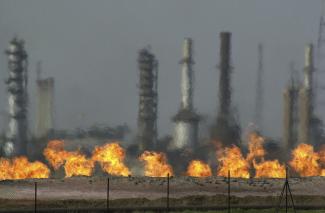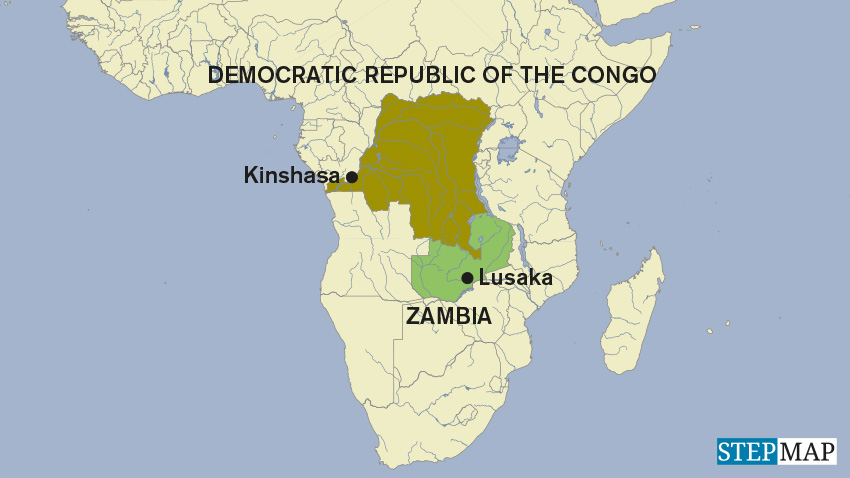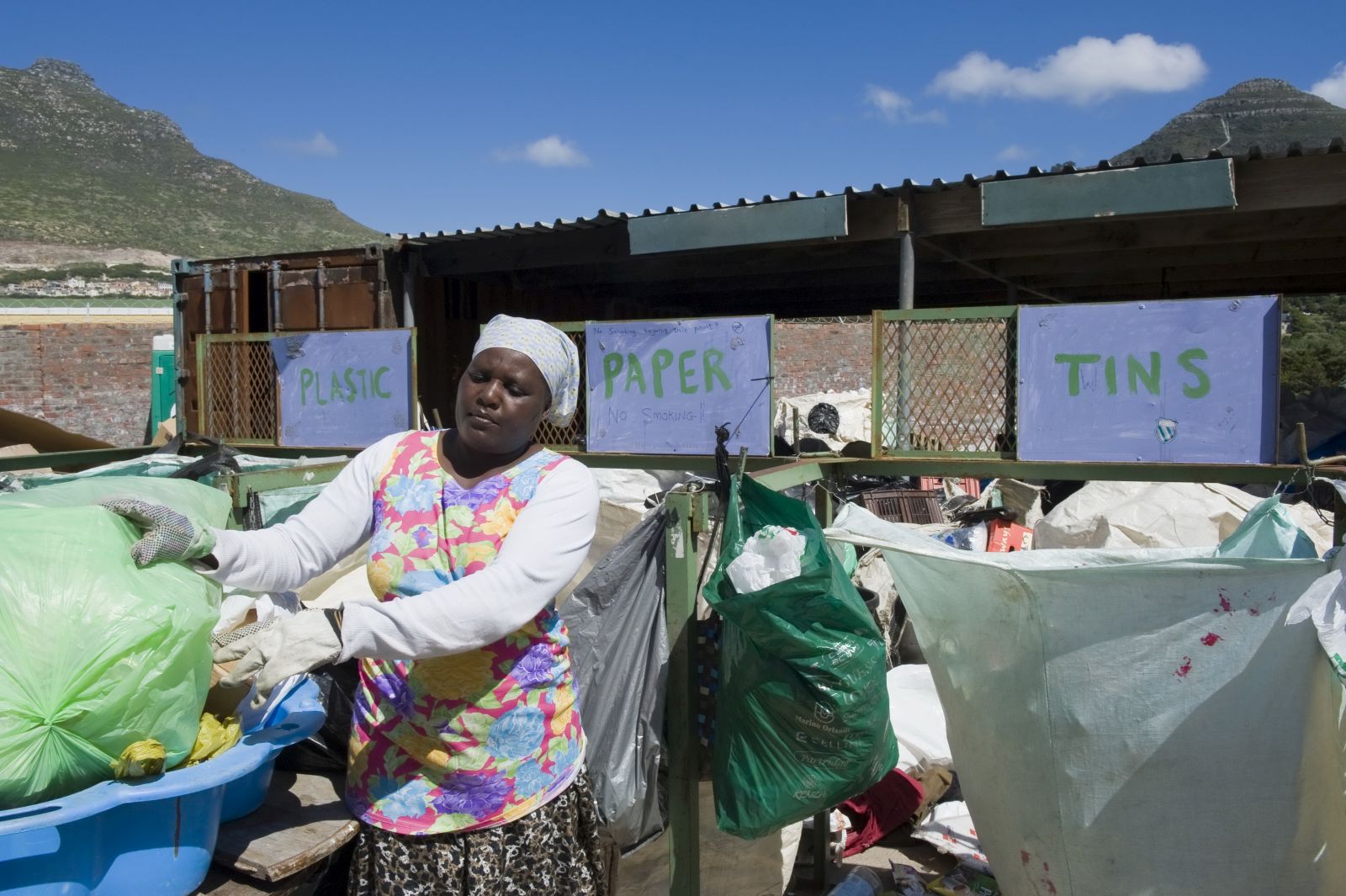Oil markets
How the mighty have fallen

Global oil prices have dropped dramatically in recent months. The long-term reasons are increased US shale oil production and greater use of renewable fuels around the world. More recently, the coronavirus crisis has made prices drop even lower. The Organization of Petroleum Exporting Countries (OPEC) has been trying to cut production to prop up prices, but the effort is increasingly difficult (see my comment in D+C/E+Z e-Paper 2020/05, Focus section).
In April 2019, the price for a barrel of OPEC oil (a weighted average of OPEC member states) was about $ 70. One year later, the price had dropped to below $ 20 and was responding to daily headlines. According to Hydrocarbon Engineering, a website, global demand in the first three months of 2020 was estimated to be 3.8 million barrels per day (bpd) below the respective figure for 2019. The website stated: “This represents a downward revision of 4.5 million bpd from previous estimates prior to the COVID-19 outbreak. Never before has such a quarterly drop been recorded.”
Increased competition from non-cartel producers, including Russia, Norway and the USA, has reduced OPEC’s clout. Today, the cartel has about a one-third share of the world oil market; that is hardly a dominant position. As OPEC cuts output, other countries step in and make up the difference. OPEC members include the Middle Eastern oil kingdoms Saudi Arabia, Kuwait and the United Arab Emirates, as well as Iran, Iraq, Libya and Algeria. Five African countries and Venezuela also belong to the club. Russia, to some extent, cooperates with OPEC.
The Middle Eastern members dominate OPEC, and the drop in world oil prices hit them as they were accelerating efforts to diversify their economies. They want to reduce their dependence on oil exports. However, diversification requires costly investments which the steep fall in oil revenues makes harder to finance.
The Gulf Cooperation Council (GCC: Saudi Arabia, United Arab Emirates, Kuwait, Qatar, Bahrain and Oman) still account about for one-fifth of the world’s oil production. Their fortunes are closely tied to those of OPEC. The outlook is currently bleak.
The fiscal impact of reduced oil revenues “could be both larger and more urgent than implied by the GCC countries’ existing plans”, the International Monetary Fund (IMF) warned in a report entitled “The future of oil and fiscal sustainability in the GCC region” earlier this year. One message was: “At the current fiscal stance, the region’s financial wealth could be depleted by 2034.”
Attracting investors
The slowdown associated with both the long term oil-price drop and the coronavirus pandemic have also damped foreign interest in investing in non-oil industries in the Middle East. The oil monarchies want to attract investments in technology-based exporting industries and develop new export markets. Accordingly they are keen on foreign-direct investments and international joint ventures in manufacturing.
In investors’ eyes, the region’s darkening outlook is a disincentive. Jihad Azour, an analyst, made that point in an IMF blog in late March: “Lower export receipts will weaken external positions and reduce revenue, putting pressures on government budgets and spilling over to the rest of the economy.” The author wrote that “sharp spikes in global risk aversion and the flight of capital to safe assets have led to a decline in portfolio flows to the region by near $ 2 billion since mid-February”.
OPEC member Iran has a particularly difficult outlook. It is struggling under the impact of US-imposed sanctions. Among other things, the sanctions block foreign investments in the country’s energy sector. Iran’s government forecasts that oil revenues will be reduced by 70 % in the next fiscal year. The country’s economic growth is forecast to be zero in 2020. The country’s considerable hydrocarbon reserves are not a useful resource at this point.
The one ray of hope for Middle Eastern oil producers is that a drop in the world oil price must hurt US-based oil producers. The shale-oil revolution has made the USA a net oil exporter. President Donald Trump has praised the domestic industry for reducing US dependence on foreign oil, generating high-paying jobs and increasing tax revenues. Prices below a certain level, however, mean that US companies can no longer produce shale oil profitably. Many may have to go out of business.
Once the oil price rises again, new investors would certainly start exploiting shale oil again. For OPEC, this situation is uncomfortable. If members reduce production, prices are stabilised – to the benefit of OPEC competitors. If members increase production, those competitors suffer, but members’ own revenues dwindle too. Using low prices to drive competitors out of business and regain something like a monopoly, is impossible, since rising prices are likely to trigger renewed competition. The common knowledge that the use of fossil fuels is the main cause of the climate crisis, adds to the pressure. Multinational oil companies are under pressure too (see box).
The situation is very different from 1973, when the Organization of Arab Petroleum Exporting Countries (OAPEC) proclaimed an oil embargo, quadrupling the price of oil within six months and sending the world economy into a tailspin. A second oil crisis followed in 1979, with equally dire consequences. Now, the shocks are being delivered from the consumers’ side of the market, with an assist from competing, non-OPEC producers. How the mighty have fallen.
Links
Hydrocarbon Engineering, 2020: IHS Markit predicts largest oil demand fall in history.
https://www.hydrocarbonengineering.com/special-reports/05032020/ihs-markit-predicts-largest-oil-demand-fall-in-history/
IMF, 2020: The future of oil and fiscal sustainability in the GCC region.
https://www.imf.org/en/Publications/Departmental-Papers-Policy-Papers/Issues/2020/01/31/The-Future-of-Oil-and-Fiscal-Sustainability-in-the-GCC-Region-48934
Aviva Freudmann is a freelance business and economics journalist based in Frankfurt. She regularly supports the editorial office of D+C/E+Z. Omid Shokri Kalehsar, a Washington-based energy and security analyst and a visiting scholar at George Mason University, contributed research to this article.
euz.editor@dandc.eu











